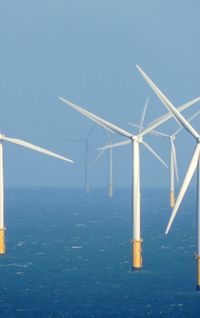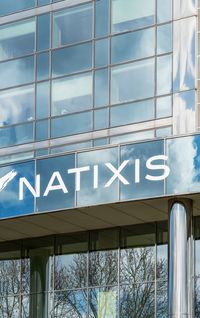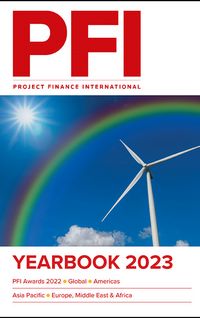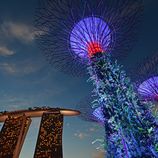The Hin Kong power project is the first gas-fired project in Thailand procuring gas from an entity other than PTT that has been project-financed by international and domestic commercial banks. By Wanwisar Nakarat, partner, and Xylia Sim, counsel, Linklaters.
The liberalisation of the gas market in Thailand has seen several companies secure LNG import licences from the Energy Regulatory Commission for the supply of natural gas to power plants of its group companies, where previously the supply of natural gas was restricted to PTT.
Project structure
The Hin Kong power project is a 1,400MW combined-cycle power project being developed by Hin Kong Power Company Ltd. The project is located in Hin Kong Sub-district, Mueang Ratchaburi District, Ratchaburi Province in Thailand and comprises two units with a net capacity of 700MW each.
The development of the Hin Kong power project is to replace the 700MW Tri Energy combined-cycle power plant owned by RATCH Group Public Company Ltd, which was decommissioned following the expiry of its power purchase agreement with the Electricity Generating Authority of Thailand (EGAT) on June 30 2020.
Hin Kong Power Company Limited was initially established with RATCH Group Public Company Limited as its ultimate shareholder, with Gulf Energy Development Public Company Ltd subsequently acquiring an interest in the Hin Kong power project in January 2020. Hin Kong Power Company Ltd is now held 51% by RATCH Group Public Company Ltd and 49% by Gulf Energy Development Public Company Ltd, both of which are leading power producers in Thailand, with portfolios that extend across the Asia-Pacific region.
The Hin Kong power project has entered into a 25-year power purchase agreement (PPA) with EGAT, with the first and second units of the project scheduled to be commercially operational in 2024 and 2025 respectively. The primary source of fuel for power generation by the project is natural gas, which will be supplied under a long-term gas sales agreement entered into by the project with Hin Kong Power Holding Company Ltd – which, similar to the project company Hin Kong Power Company Ltd, is held 51% by RATCH Group Public Company Ltd and 49% by Gulf Energy Development Public Company Ltd.
The gas turbines for the project will be supplied by Mitsubishi Power, formerly MHPS, which forms part of the EPC contractor consortium together with MHI Power Project (Thailand) Co Ltd and Sino-Thai Engineering and Construction Public Company Ltd.
The project has also entered into a long-term service agreement with MHI Power Project (Thailand) Co Ltd with respect to the major equipment required for the project. The operation and maintenance of the project will be outsourced to EGAT, leveraging on EGAT’s depth of experience in providing such services in addition to that of the sponsors in operating power projects in Thailand for the benefit of the project.
Financing structure
The Hin Kong power project is financed on the basis of a limited recourse project financing, with debt financing for the project costs for the construction of the project funded through a combination of a US dollar and Thai baht term loan facilities on an approximately 50:50 basis. The project financing also includes a VAT facility, working capital facility and a bank guarantee facility. The thirteen lenders on the financing comprise a mix of international and Thai commercial banks, including a number of banks new to the Thai IPP market.
Given the cessation of Libor, the interest rate on the US dollar facility was calculates on the basis of the overnight SOFR, while interest on the Thai baht facility was determined on the basis of the Thai Overnight Repurchase Rate (THOR). The financing documentation includes mechanics addressing the calculation of debt service coverage ratios and debt service reserving requirements in the light of SOFR and THOR being backward-looking rates.
Liberalisation of the gas sector
Natural gas still accounts for more than 50% of Thailand’s current power mix. Declining levels of domestic production of natural gas also mean a greater reliance on imports of LNG to meet Thailand’s power generation requirements. This, together with the broader ambition of the government of Thailand to turn Thailand into an LNG trading hub, has helped drive the liberalisation of the gas sector in Thailand, where historically PTT has been the sole importer, purchaser, transporter and distributor of natural gas.
As part of the liberalisation of the gas sector in Thailand, a number of private companies, including Hin Kong Power Holding Company Ltd, were issued with LNG shipper licences by the Energy Regulatory Commission of Thailand, allowing the holders of such licences to import LNG up to a specified cap. The LNG shipper licences that have been issued thus far have generally been with a view to the licence holders importing LNG for the purposes of power generation by their affiliate companies.
As PTT retains sole ownership over the gas transmission system in Thailand, following the Energy Regulatory Commission’s publication of the Third Party Access Regime in 2014 imposing obligations on holders of natural gas distribution and regasification licences to have a third-party access code, PTT has published a third-party access code with regards to third-party access to the onshore natural gas pipeline transmission system.
The third-party access code includes obligations on PTT to ensure access, as well as to consider the long-term plans of its users with regards to demands on the onshore gas transmission pipeline system in order to prepare its own long-term development plans for the infrastructure of such system. PTT has also a third-party access framework in place for its LNG terminal infrastructure.
Gas supply contractual structure
With the liberalisation of the gas market in Thailand, we expect that similar to LNG supply arrangements in other jurisdictions, with the contractual arrangements required to be entered into by a licensed LNG shipper for the supply of natural gas to a power project in Thailand, would comprise the contracts listed below:
* Long-term gas sales agreement – To be entered into with the project company developing the power project;
* Master sales agreement – To be entered into with EGAT similar to the arrangements in place between EGAT and PTT with respect to the supply of natural gas by PTT to the Thai IPP power projects;
* LNG sale and purchase agreement(s) – To be entered into with suppliers of LNG with respect to the sale and purchase of LNG;
* Terminal use agreement – To be entered into with the LNG terminal operator with respect to the services to be provided by the LNG terminal operator including unloading, storage and regasification, as well as the obligations of the LNG shipper to the power project as a user of such LNG terminal;
* Intershipper agreement – To be entered into among the users of the LNG terminal with the LNG terminal operator with respect to the relationship between the LNG terminal users in relation to the commingled LNG in the LNG terminal facilities; and
* Pipeline capacity contract – To be entered into with PTT, or a new subsidiary of PTT to be set up for the provision of gas transmission services, as operator of the gas pipeline with respect to the transportation of natural gas to the power project.
The above are consistent with the arrangements that are envisaged to be entered into in relation to the Hin Kong power project, although we do note that the approach could vary for other power projects in Thailand depending on the natural gas procurement strategy, such as whether the supply of natural gas may be from a combination of supply from a licensed LNG shipper and PTT.
Given that the power project itself is required to be connected to PTT’s gas transmission system in order to be able to receive gas, the following arrangements will also have to be in place between the project company developing the power project and the operator of the gas transmission system, being PTT or its subsidiary:
* Connection agreement – To be entered into with respect to the construction of certain interconnection facilities to the gas transmission system, the transfer of ownership of such interconnection facilities to PTT and the right to connect the power project’s pipeline system to the gas transmission system; and
* Gas interconnection facilities operations and maintenance agreement – To be entered into with respect to any operation and maintenance works required for such facilities prior to such facilities being transferred pursuant to the connection agreement.
Key structuring considerations
The risk allocation with respect to gas supply was a key consideration for the lenders in assessing the bankability of the gas supply arrangements for the project, particularly with regards to how this compared with previous gas-fired power projects that had been internationally project-financed where natural gas is supplied by PTT.
With regards to the costs of procuring natural gas, in general the Energy Regulatory Commission sets the pricing formula for companies with respect to the cost of procuring natural gas under private gas sales agreements, which is determined by reference to, among other things, the weighted average cost of natural gas specified by the Energy Regulatory Commission. Ensuring that such gas sales price is adequately covered by the tariff under the power purchase agreement was a key area of focus for lenders, although in this regard, it is noted that the same pricing formula would have also applied to natural gas procured from PTT.
An area of greater focus for the lenders was the extent to which the risk of interruptions to gas supply would be passed through to EGAT under the terms of the power purchase agreement given that damages under the gas sales agreement would not be sufficient to cover the loss of revenues under the power purchase agreement. The extent to which EGAT would assume the risk of interruptions to gas supply similar to where gas is being procured from PTT is, in turn, subject to there being clarity that while the gas supplier and the power producer are affiliated entities, they are separate entities that are being independently managed, and the gas sales agreement between the gas supplier and the power producer reflects an arrangement entered into on arms-length terms.
The pass-through of the risk of gas supply interruptions to EGAT under the power purchase agreement also impacted on the lenders’ assessment of the counterparty risk with regards to the gas supplier’s ability to perform, as well as the extent to which lenders required visibility over the arrangements entered into by the gas supplier to procure natural gas in order for it to meet its supply obligations.
Conclusion
With developers in the power sector in Thailand increasingly looking to ensure supply of natural gas for their projects, both new and existing, by importing LNG through their other business lines, the gas supply structure for the Hin Kong power project provides an example of how a LNG gas supply structure could be bankable in the context of a gas-fired power project in Thailand.
To see the digital version of this report, please click here
To purchase printed copies or a PDF of this report, please email leonie.welss@lseg.com

















